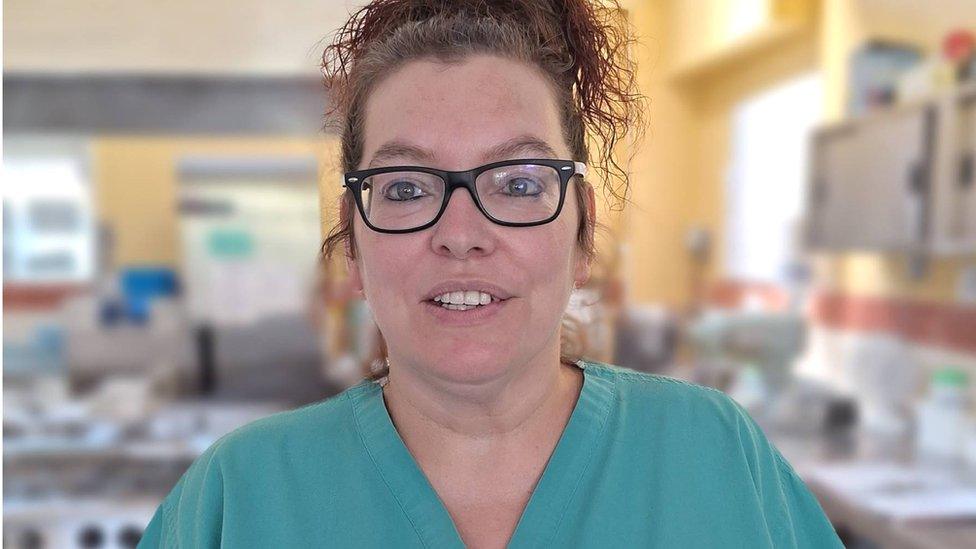Carer shortage: Woman stuck in hospital for 11 months
- Published
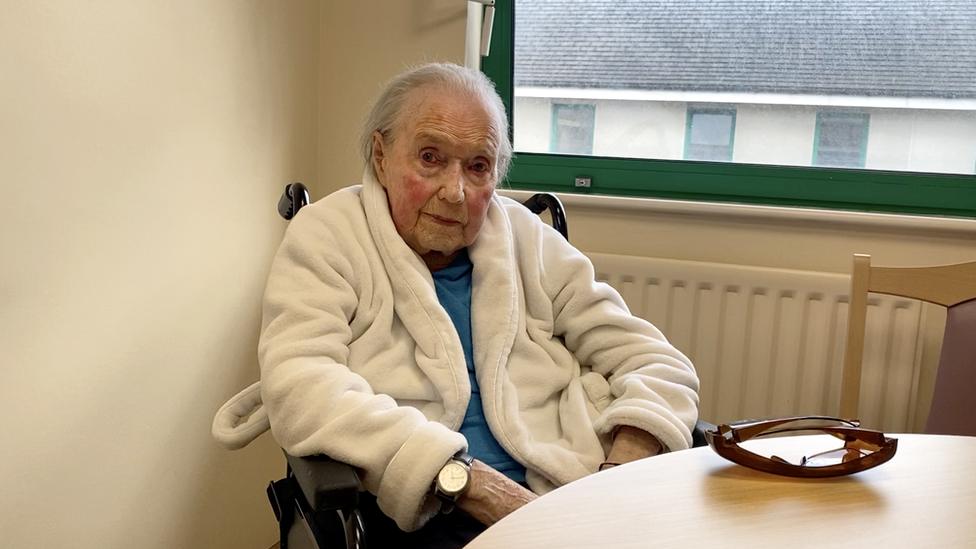
Lily has always been independent but says she felt "imprisoned" in hospital after 11 months
"It's just this awful feeling of being imprisoned," said 96-year-old Lily, who was stuck in hospital for nearly a year while waiting for care support to become available.
She is just one of thousands of people in the UK who have been stuck in hospitals or are at home due to long waits for care assessments.
Lily was delayed in being discharged despite her being "medically fit", and because her council had difficulty finding carers to support her at home.
The BBC has found 23% of councils in the UK who provided data had average delays of over a month for care assessments, with some people waiting years for care.
The Local Government Association (LGA) said the figures showed a "chronically underfunded system and the pressures councils continue to face".
The UK government said waiting lists were down but there was "more to do".
'When can I go home?'
With no family, Lily has lived on her own in the Vale of Glamorgan for decades.
She was admitted to hospital in February 2022 for an infection and expected to be back home within weeks.
But her stay at Barry Hospital stretched to 15 months. She was fit to leave for 11 of those, but had to wait for carers to become available.
"I've just been in bed constantly apart from being hoisted sometimes into a chair - I haven't had my feet on the ground at all," she said.
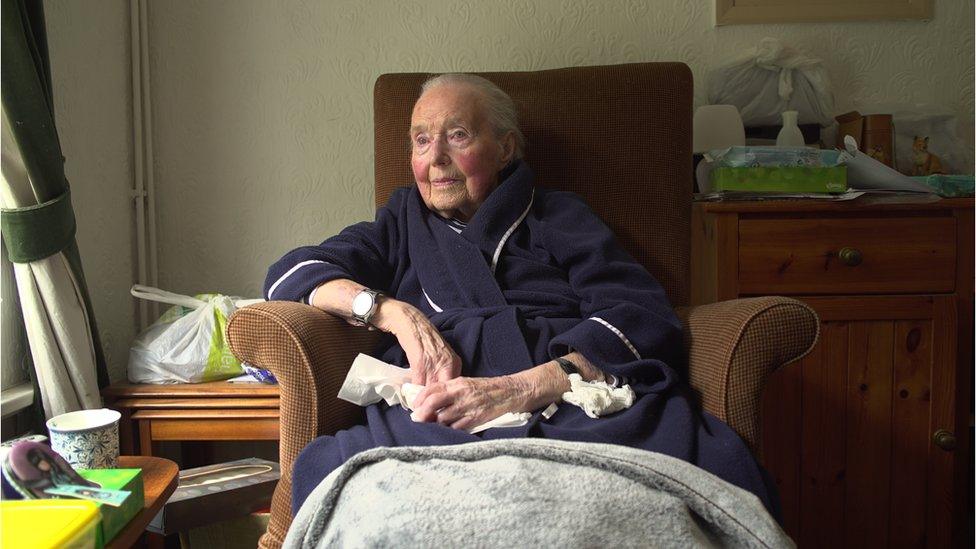
Lily says she was taking up beds for people that needed them more
"I used to say 'when can I go home?' and the social worker would say 'we're very short of staff at the moment'."
She said her council only found carers for her after she threatened to discharge herself from hospital - but said she doesn't blame staff.
How long are people waiting?
BBC Wales Investigates and the BBC's shared data unit asked all 203 local authorities in the UK about their average wait for an initial care assessment in the year 2022 to 2023.
Of the 78 who responded 40% had an average wait of at least three weeks, but five had examples of people waiting more than three years.
At least 1,399 people died while waiting for their local authority to arrange a package of care in 2022/23.
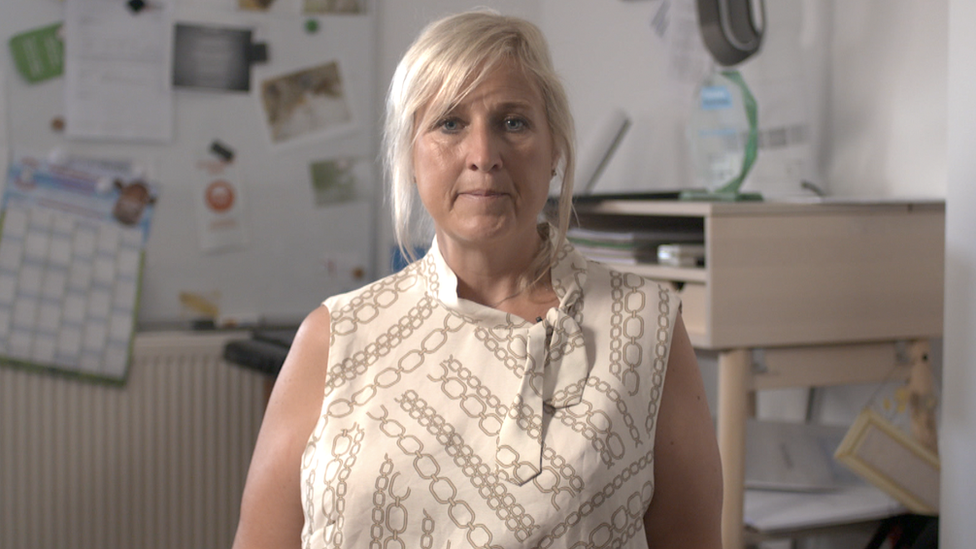
Keri Lewellyn says Covid has had a big impact on staffing
Keri Lewellyn runs a care company in Barry, south Wales, and said staff have "left in their droves" since the pandemic, meaning she only has enough carers for half the number of clients she used to.
"A local Asda pays £13 an hour with no previous experience, so we can't really compete," she said.
"A lot of the people who do this job are very loyal - some of them haven't wanted to leave - but the cost of living pressures recently has meant that they can't make that choice now."
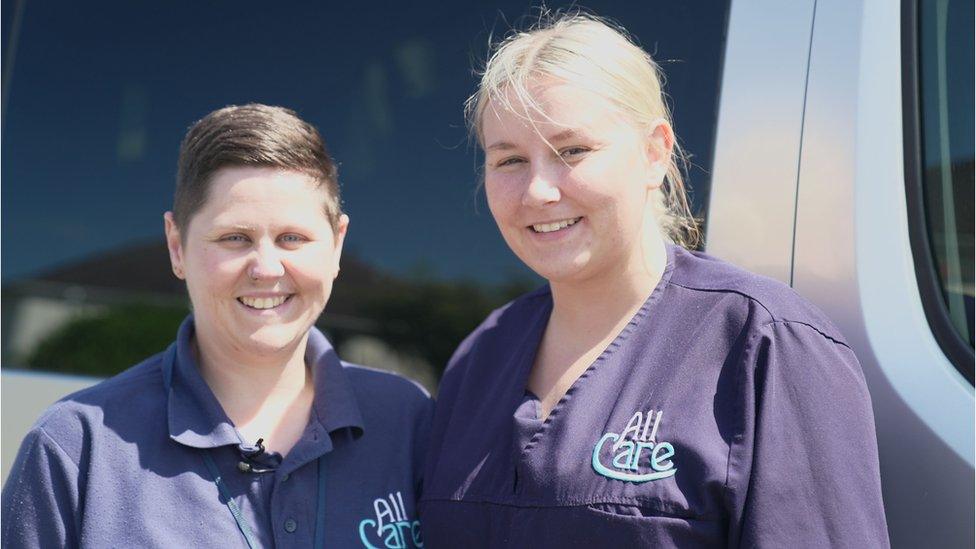
Rebecca (left) and Jessica are both carers in Wales and say there is not enough staff
Care workers Rebecca Bevan and Jessica Darch, who work in Barry and Rhoose, said they have also noticed the system is under pressure because of underpaid staff.
Rebecca said: "I think in the bigger picture, care workers in general are looked down upon, they don't get paid enough for the job that we're doing and I think that is a massive factor in why there isn't enough of us out there."
Nadra Ahmed, from the National Carers' Association which represents care companies in England, said carer pay was an issue in the country also, while "consistent miscommunication" between health and social care also contributed to delays.
'Like solitary confinement'
Retired police officer Nigel was diagnosed with multiple sclerosis (MS) 12 years ago, and said he had to wait three months for carers to be found so he could return to his home in the Vale of Glamorgan.
"Without them I'd just be stuck in the bed all day. It would be like solitary confinement," he said.
"I think it's disgusting people are still out there waiting for carers - there's people there that can't have their operations because beds are full of people waiting to come home."
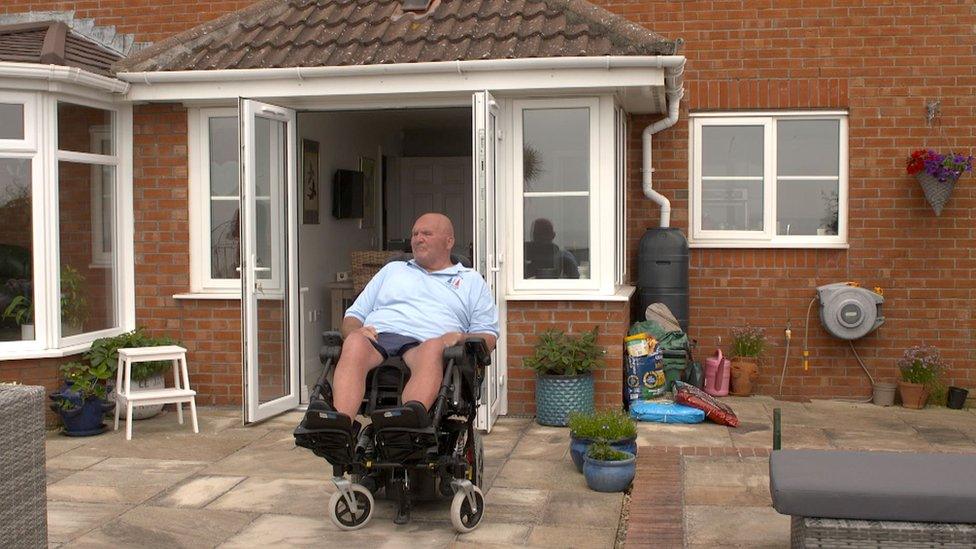
Retired police officer Nigel was diagnosed with MS and says without his carers he would be "stuck in bed"
The BBC asked councils how many contracts were handed back to them from private companies, and found it was equivalent to over 70,000 hours.
Of those who responded, 74% said staffing was one of the main reasons.
David Fothergill, chairman of the LGA which represents councils in England, said: "These figures show in the most concerning terms the human impact of the level of pressures facing our adult social care system."
The LGA has warned that additional funding the UK government said is being provided for England would be "absorbed" by "demography, pay and inflationary pressures" and fell "well short of what is needed to allow councils to fully deliver against their Care Act duties".
The Department of Health and Social Care said it was providing up to an additional £7.5bn for social care in England over the next two years to increase wages, reduce waiting times and increase workforce capacity.
The Welsh government, which is responsible for health and social care in Wales, said it was investing £70m this year to improve the pay of carers to £10.90 per hour.
A spokesman for the Vale of Glamorgan council said it apologised unreservedly to both Lily and Nigel, but that cases such as these were not unique to its area due to a "national crisis in domiciliary care" across the UK.
He said the pandemic and an "acute staff shortage" made the situation more difficult, but that a recruitment drive means waiting lists are now down to "a handful" of cases.
Cardiff and Vale health board said the amount of care Lily needed played a part in how long she stayed in hospital, and said Nigel was offered regular therapy while he was a patient.
A spokesman for the health board said it understood the concerns of both patients about delays, and was working hard with councils to get people home as soon as possible.
'I Want To Go Home' - BBC Wales Investigates is on iPlayer and on BBC One Wales at 20:00 BST on 31 July.


Have you been affected by this story? Email Walesinvestigates@bbc.co.uk.
Please include a contact number if you are willing to speak to a BBC journalist.
- Published18 March 2023
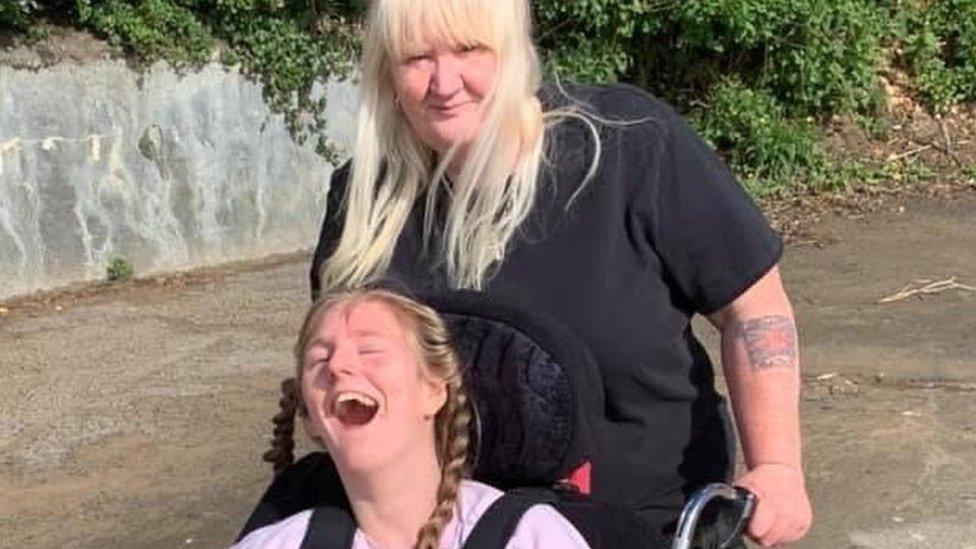
- Published1 February 2023
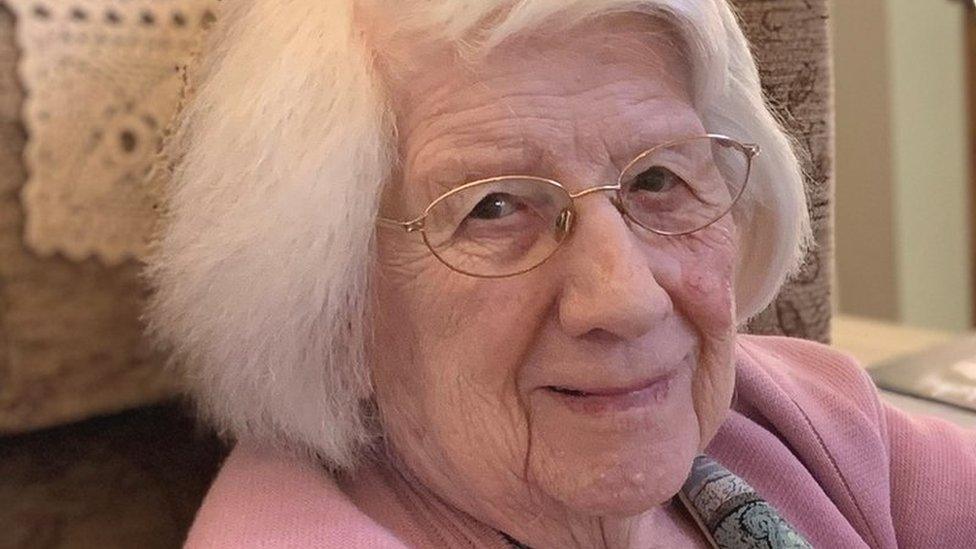
- Published5 July 2023
